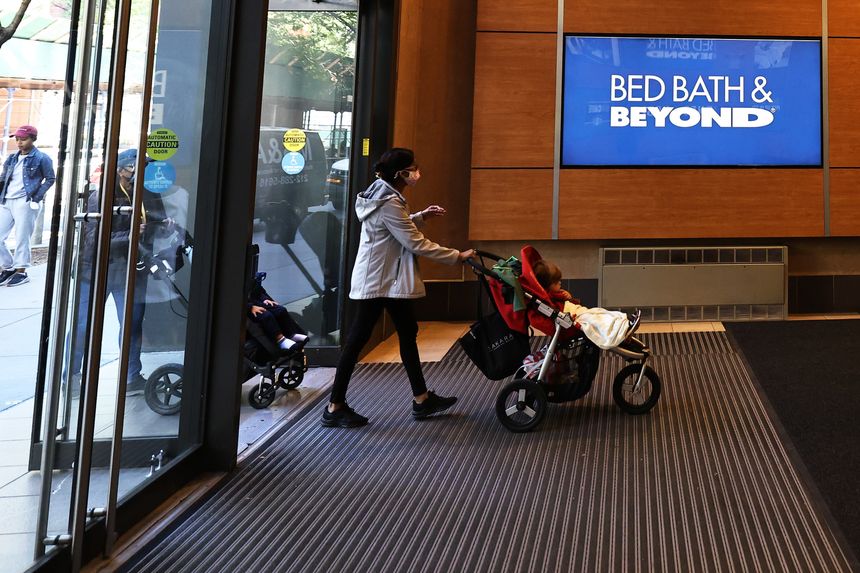
The retailer said its same-store sales fell 7% in the latest quarter.
Photo: Michael M. Santiago/Getty Images
Bed Bath & Beyond’s BBBY 7.97% shares rode the meme-stock surge to the moon a year ago. Today its shares have come back closer to Earth—an altitude where it is easier for not only short sellers but its management to breathe.
The retailer on Thursday had mostly bad news to deliver. It reported that same-store sales in the quarter ended Nov. 27 fell 7% compared with a year earlier—much more than the 0.9% decline analysts had been expecting. Some of that had to do with problems beyond its control. Without supply-chain snags, the company said, it would have sold $100 million more. But some are of management’s own making: The company last year got rid of too many printed circulars, which it later realized were an important traffic driver. Even after deciding to correct the issue, paper-supply problems last quarter meant the retailer couldn’t print those out as quickly as it wanted to.
Despite the disappointing numbers, the company’s shares gained 8% after the earnings call. Wild swings are the norm following Bed Bath & Beyond’s earnings results: Although short interest has come down from the 71% it once reached in 2020, it still accounts for 24% of the stock’s float. Even with that gain, Bed Bath & Beyond’s share price is now roughly a quarter of last year’s peak and the company is trading more like a struggling retailer again. Its enterprise value is roughly 0.4 times forward revenue, around its five-year average.
But there is a silver lining to leaving meme-stock orbit. The company has said it aims to conclude its accelerated share-buyback program by the end of next month, two years ahead of schedule. The $1 billion program, announced months before the Reddit-fueled rally, became risky and expensive for the company at times. It paid an average price of $46.83 a share on its buybacks in April, which was more than double what it had paid at an earlier stage. Because short interest is still high, anything from new excitement on social media or better-than-expected earnings results still has the potential to send the stock soaring. Getting the buybacks out of the way should allow management to focus more on concrete matters such as its continuing store-pruning and remodeling plans, and fine-tuning its marketing.
Chief Executive Mark Tritton, a former Target executive, inherited a house that was falling apart. Remodeling it has come with some missteps, including the way the company has chosen to return cash to shareholders. Barring another Reddit-fueled squeeze, at least it will now have one less management headache.
Write to Jinjoo Lee at [email protected]
Copyright ©2022 Dow Jones & Company, Inc. All Rights Reserved. 87990cbe856818d5eddac44c7b1cdeb8
Appeared in the January 7, 2022, print edition as ‘Bed Bath & Back From Meme-Stock Beyond.’








